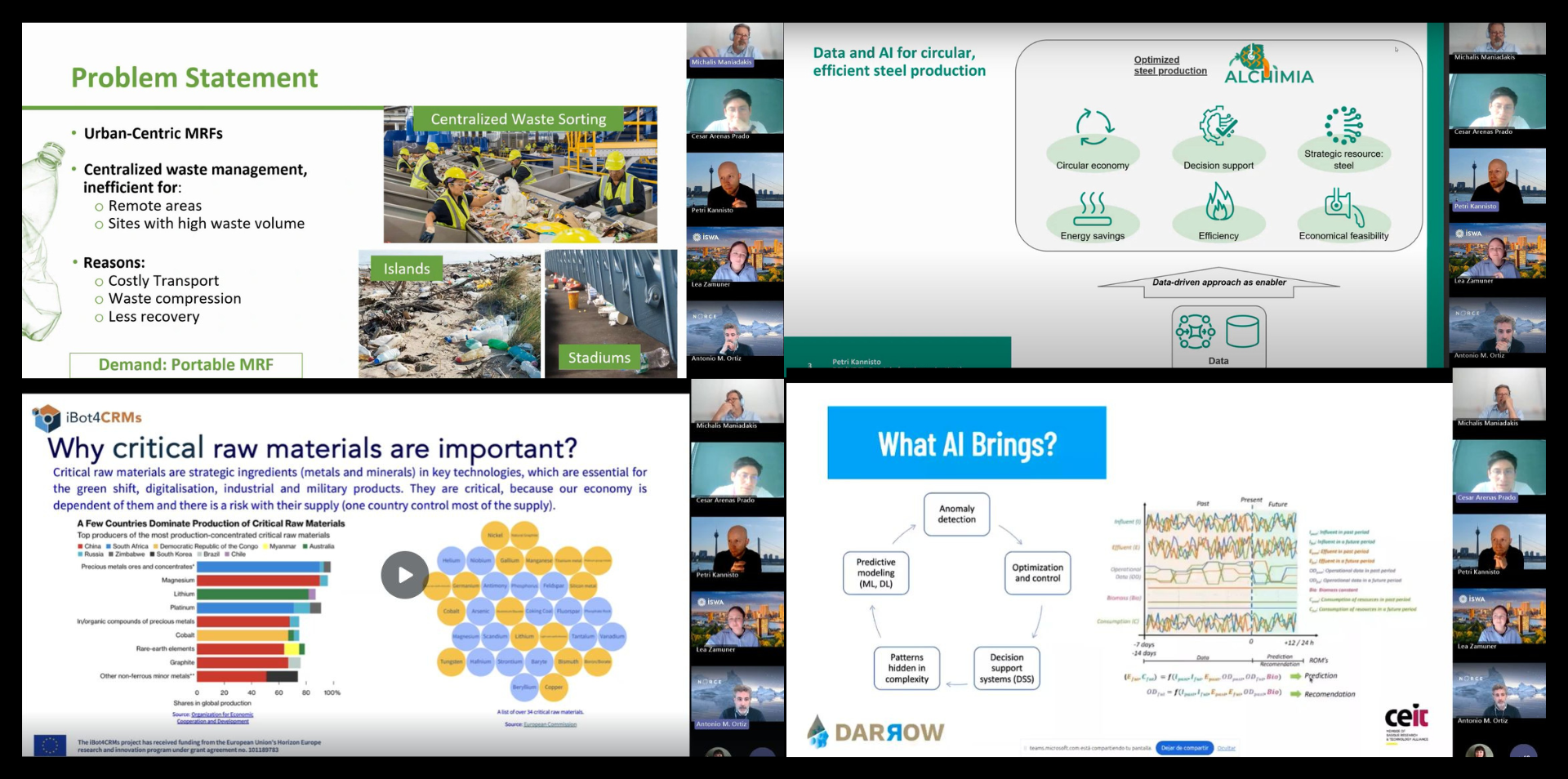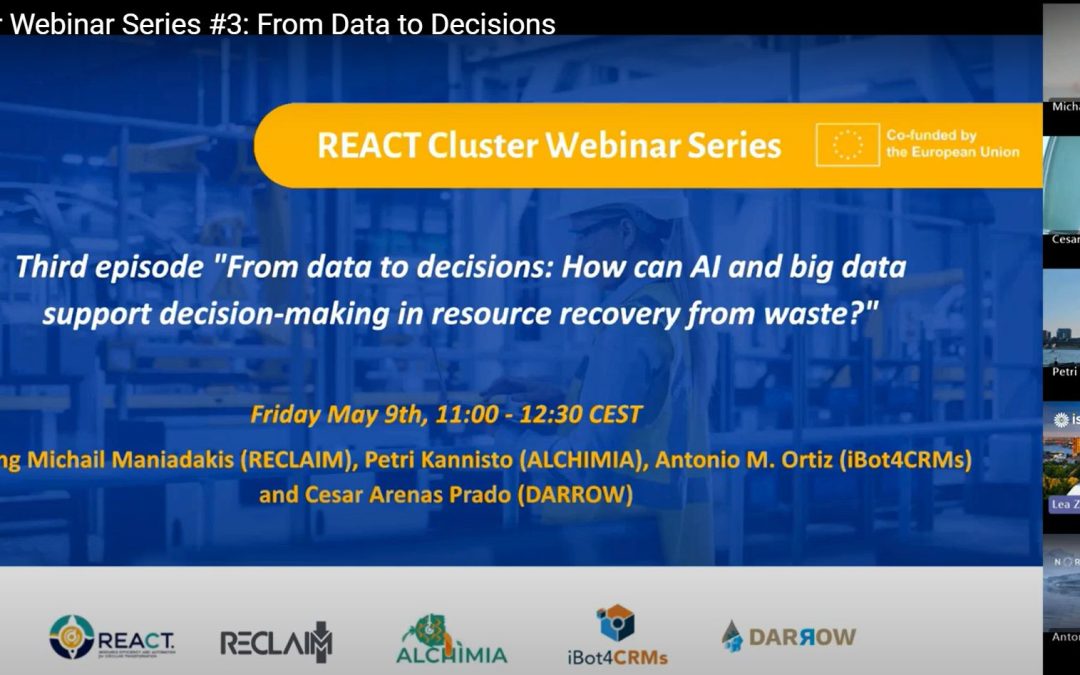On May 9th, 2025, the third edition of the REACT Cluster Webinar series gathered 53 participants from all industries, including research and academia, recycling companies, technology providers, policymakers and industrial associations.
Moderated by Léa Zamuner, the technical communications coordinator for the International Solid Waste Association (ISWA) and the iBot4CRMs project, the one-and-a-half hour session kick started with presentations by experts Michalis Maniadakis from the RECLAIM project, and the Institute of Computer Science-FORTH, Petri Kannisto from the ALCHIMIA project and the Betriebsforschungsinstitut, Antonio M.Ortiz from the iBot4CRMs project and the Norwegian Research Centre, and Cesar Arenas Prado from the DARROW project and the Ceit:
- Michalis presented the portable robotic Material Recovery Facility (prMRF), designed to revolutionise remote waste management in Europe through decentralised sorting at the source;
- Petri introduced a decentralised Artificial Intelligence (AI) and data solution to support the green transition of Europe’s major metallurgy industries;
- Antonio explained how AI-powered robots are being developed to automate urban mining and improve the recovery of critical raw materials;
- Cesar highlighted efforts to enhance wastewater treatment by reducing energy use, emissions, and chemical consumption while improving water quality.

Focused on each of the solutions provided by their respective EU-funded projects, all the initiatives also introduced how they use AI for resource recovery from different waste streams and sectors, such as municipal solid waste, industrial waste, urban waste and wastewater. While each waste stream appeared singular, all these projects had a common goal to collect data to improve the processes and increase efficiency to ultimately make European industries more competitive.
From this perspective, the panel discussion delved into key topics, such as data usage for robot control, evaluating robotic decisions, and the integration of AI and non-AI methods for data-driven decision-making. Participants also discussed data collection strategies, AI-assisted process optimisation, and the challenges of scaling up these solutions. The conversation emphasised the importance of ensuring the long-term profitability of these technologies, particularly from iBot4CRMs’ perspective, as a critical factor for sustainability. Additionally, challenges related to data quality and the need for regular updates to hardware and software were highlighted.
Following an engaging Q&A session with the audience, the experts were invited to explore potential areas of collaboration among their projects. Clear opportunities emerged between RECLAIM and iBot4CRMs, both of which employ similar robotic systems, such as vision-based component identification. Other promising topics included shared methodologies and the use of continual learning approaches in AI. Petri also called attention to the overarching goal shared by all the projects: advancing a circular economy and sustainability while safeguarding human welfare and building resilience. He underlined the importance of continuing this collaborative work to achieve that common vision
The full recording of this event is available on the following iBot4CRMs webpage, where you can also find the presentations used by each expert.

